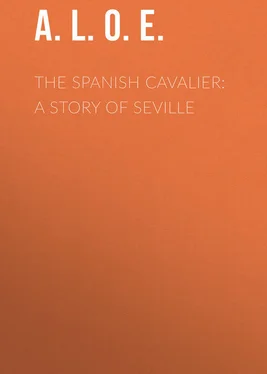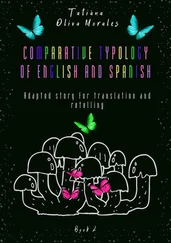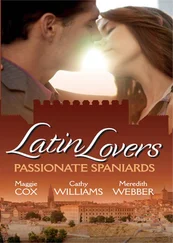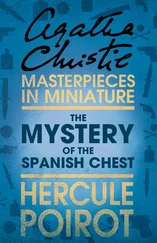A. L. O. E. - The Spanish Cavalier - A Story of Seville
Здесь есть возможность читать онлайн «A. L. O. E. - The Spanish Cavalier - A Story of Seville» — ознакомительный отрывок электронной книги совершенно бесплатно, а после прочтения отрывка купить полную версию. В некоторых случаях можно слушать аудио, скачать через торрент в формате fb2 и присутствует краткое содержание. Жанр: foreign_antique, foreign_prose, на английском языке. Описание произведения, (предисловие) а так же отзывы посетителей доступны на портале библиотеки ЛибКат.
- Название:The Spanish Cavalier: A Story of Seville
- Автор:
- Жанр:
- Год:неизвестен
- ISBN:нет данных
- Рейтинг книги:3 / 5. Голосов: 1
-
Избранное:Добавить в избранное
- Отзывы:
-
Ваша оценка:
- 60
- 1
- 2
- 3
- 4
- 5
The Spanish Cavalier: A Story of Seville: краткое содержание, описание и аннотация
Предлагаем к чтению аннотацию, описание, краткое содержание или предисловие (зависит от того, что написал сам автор книги «The Spanish Cavalier: A Story of Seville»). Если вы не нашли необходимую информацию о книге — напишите в комментариях, мы постараемся отыскать её.
The Spanish Cavalier: A Story of Seville — читать онлайн ознакомительный отрывок
Ниже представлен текст книги, разбитый по страницам. Система сохранения места последней прочитанной страницы, позволяет с удобством читать онлайн бесплатно книгу «The Spanish Cavalier: A Story of Seville», без необходимости каждый раз заново искать на чём Вы остановились. Поставьте закладку, и сможете в любой момент перейти на страницу, на которой закончили чтение.
Интервал:
Закладка:
"They say," observed the merchant who had spoken before, "that Don Aguilera's family, of whom he is the chief if not the only support, are mightily distressed at his venturing as a picador into the Plaza de Toros. I hear that he has a poor old grandmother, who lost her husband in the war with the first Napoleon; and a young sister who, it is said, is breaking her heart with grief."
Lucius remembered the light graceful form which he had seen springing across the patio, and the tones of the sweet eager voice which had exclaimed, "Alcala, is it you at last?" The young Englishman thought of his own favourite sister, and felt for the Spanish girl, though the reality of her misery exceeded the picture drawn by his fancy.
The conversation now turned on other subjects, but the mind of Lepine was full of but one. He could not join in discussions on Spanish politics, or the current business of the day. The untasted viands lay before him; he cared not to touch food, though he had fasted since the morning. Lucius took the earliest opportunity of quitting the party and returning to a small lodging which he had taken in one of the humbler streets of Seville.
CHAPTER VI.
A SISTER'S SACRIFICE
It is the dawn of a sweet Sabbath morn, peaceful and calm. The last lingering star is trembling still in the sky, but the fleecy clouds have caught a tint of rose from the not yet risen sun.
By the archway of the dwelling of the Aguileras stands a bay horse, gaily caparisoned. His saddlecloth has been made out of a Moorish mantle striped with gold, a relic of happier days. Deep fringes of scarlet girdle his chest and encircle his haunches, and tassels of the same bright hue hang from the band above his eyes. The noble animal looks conscious of his dignity; he has been generously fed for the last few days, and the unwonted luxury of corn has restored to the old war-horse some of his former spirit. But "with arched neck, and drooping head, and glancing eye, and quivering ear," Campeador gently receives the caresses of the young mistress whose hand has helped to deck and to feed him, and who with tears and sighs is bidding him now farewell.
Inez is no striking specimen of Spanish beauty, though her appearance on this morning must have awakened sympathy and interest even in a stranger. Her graceful form is rather below the middle size; she has the clear brunette complexion and the large almond-shaped eyes, shaded with long dark lashes, which are characteristic of the Andalusian race. The cheek is very pale, and the eyes are heavy with weeping, and the slender hand trembles as it strokes Campeador's long flowing mane.
Inez has passed a restless, miserable night, devising all kinds of wild schemes for keeping her brother from the perilous encounter; schemes which melted away with the first gleam of morning light. If she kept back his horse, if she detained his accoutrements, Alcala, his sister well knew, would but provide himself with others. He would rather ride into the circus on one of the wretched hacks destined for slaughter, than fail at the hour of appointment. Inez could now but send, both by letter and word, entreaties to her brother that he would at least come and see her before going to the Plaza de Toros. The letter and messages were intrusted to Chico, a dark-browed, bandy-legged, ill-favoured groom, who was to lead the horse about a mile beyond the boundaries of Seville, to the Posada de Quesada, where Alcala had chosen to pass the preceding night. Chico's stunted form was half hidden under the burden of finery which he carried; he did not, however, bear with him the picador's spear, for that needful weapon Alcala had selected for himself, not trusting the choice of it to a servant.
A little in the rear of the group appeared Teresa; but Lucius, had he been present, would scarcely have recognized in her the work-soiled, poorly-dressed old drudge whom he had seen bargaining with the hawker. Teresa was now attired in her best Sunday apparel; and the look of complacent pride on her wrinkled face was in strong contrast to that of despairing sorrow on that of her youthful lady. Teresa allowed herself the one annual treat of going to a bull-fight, to her Spanish mind the greatest of pleasures. She had a cousin to whom belonged the office of cleansing the blood-stained arena, and who always contrived to smuggle Teresa into a good seat, she being content to go early and wait for hours before the entertainment began. Nothing would have bribed the ancient Andalusian to have been absent from the Plaza de Toros on the present occasion; her strong desire to go overcame her reluctance to leaving for the greater part of the day her infirm old mistress and the sorrowing Inez. To Teresa, blinded by pride even greater than that which usually characterizes the Spaniard, the coming struggle in the Plaza de Toros appeared in a very different light from that in which it was viewed by Alcala's more clear-minded and tender-hearted sister. Full of the glories of the race of heroes from whom her master was descended, Teresa felt not a doubt that she was going to be a witness to his triumph. It had been a bitter humiliation to the old domestic to know that Alcala was earning his bread by honest industry. Had he consulted Teresa, the family might have starved before the caballero had so demeaned himself as to work for the firm of Messrs. Passmore and Perkins. But it was a very different thing to behold Don Alcala de Aguilera ride in magnificent array into the Coliseo, to confront danger with all the courage of his race, and win the plaudits of assembled thousands. Teresa felt as an old retainer of some knight might have done in days of chivalry, when his master rode forth, with gilded spurs and waving plume, to win honour in the lists at some brilliant tourney. To Teresa's partial eyes Campeador was the noblest of steeds, worthy to carry the bravest of masters. The arm of an Aguilera, once raised to strike, must hurl to the dust whatever opposed it. Teresa would not have feared the result had Alcala had, like Hercules, to slay the Nemean lion.
And the hopes of Teresa extended far beyond the triumph of a day. Donna Antonia de Rivadeo, the wealthiest as well as the most beautiful heiress in Seville, was to be present at the gran foncion in the Coliseo. The lady would look on Alcala no longer as the drudging clerk, serving a foreign heretic, but as the chivalrous caballero of Andalusia, valiant as ever was knight who couched lance against the Moors in the time of Queen Isabella. The days of pinching poverty and humiliation would be ended at last; Alcala would spear his bull, and win his beautiful bride, and Teresa would receive at last the reward of her long faithful service. In imagination Teresa, in the richest and stiffest of silks, already presided over a numerous household in a sumptuous palace, instead of toiling from morning till night, ill paid and scantily fed, with no one to abuse and order about but bandy-legged Chico, who always disputed her commands. Such bright visions seemed to take ten years of age from the ambitious Teresa, and she saw with impatience and indignation the grief which showed how little Inez shared in such hopes.
"Shame on those tears, Donna Inez!" exclaimed old Teresa. "It is well that your illustrious brother is not here to see your weakness; it would make the caballero blush for his sister! Are you a daughter of the house of De Aguilera, and yet tremble with cowardly fear?" The spirit of Inez was too much broken for the insolent taunt to raise even a flush on her cheek.
They were gone. Campeador had been led away by Chico, and Teresa had hobbled off with what energy hope and pride could lend towards the Plaza de Toros. Inez returned into the house to perform a homely duty which sorrow did not make her forget. There was no one but herself to prepare her grandmother's early cup of chocolate; Inez made it ready, and then carried it to the bedside of Donna Benita.
Читать дальшеИнтервал:
Закладка:
Похожие книги на «The Spanish Cavalier: A Story of Seville»
Представляем Вашему вниманию похожие книги на «The Spanish Cavalier: A Story of Seville» списком для выбора. Мы отобрали схожую по названию и смыслу литературу в надежде предоставить читателям больше вариантов отыскать новые, интересные, ещё непрочитанные произведения.
Обсуждение, отзывы о книге «The Spanish Cavalier: A Story of Seville» и просто собственные мнения читателей. Оставьте ваши комментарии, напишите, что Вы думаете о произведении, его смысле или главных героях. Укажите что конкретно понравилось, а что нет, и почему Вы так считаете.












